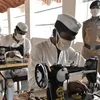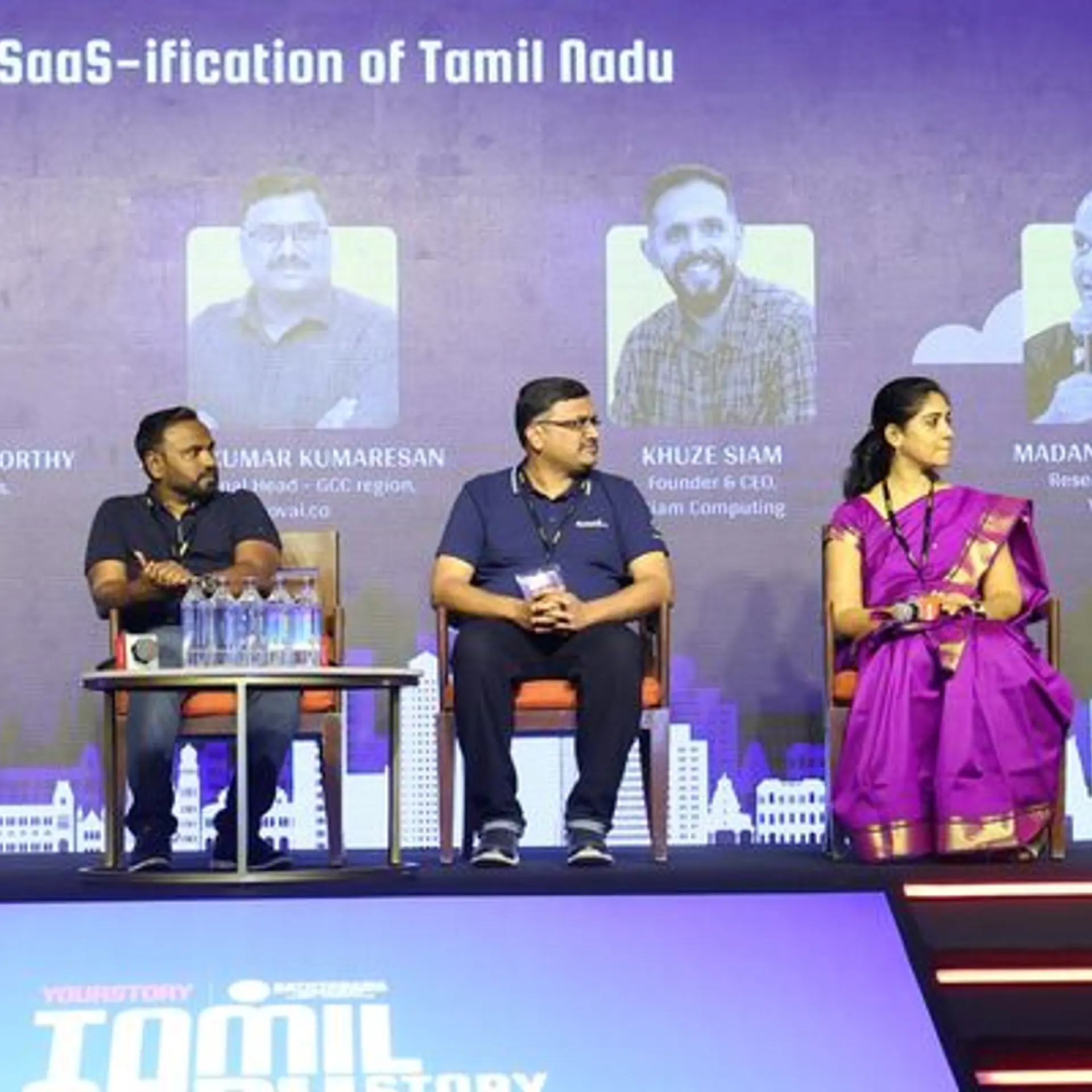Meet these 4 coronavirus warriors who went beyond call of duty to help others
During the coronavirus crisis, several people and groups have shown acts of kindness, such as delivering free groceries, delaying rents, helping each other, and so on. While some diverted loans for daughter’s marriage to help others, others used their entrepreneurial skills.
During the coronavirus crisis, several people and groups have shown acts of kindness, such as delivering free groceries, delaying rents, helping each other, and so on. While some diverted loans for daughter’s marriage to help others, others used their entrepreneurial skills.

We bring you four such stories where people have gone beyond their call of duty to solve problems in their communities that benefit others.
Investment banker turns entrepreneurs to deliver groceries in Siliguri
Amid the nationwide lockdown due to the coronavirus pandemic, procuring essentials has become a difficult task. For people living in the metros, thanks to the hoard of e-grocers such as , , Modern Bazaar, , , and , among others, buying essential goods has become easier. However, for a significantly large population that lives in non-metros and villages, procuring everyday items has become a tough task.

Shiv Bansal
Bengaluru-based investment banker Shiv Bansal also felt the same pain when he flew to his hometown Siliguri in West Bengal upon the announcement of the lockdown to take care of his ageing parents during the COVID-19 pandemic. When Shiv was asked by his parents to get groceries, to his dismay, he couldn’t find any home delivery services for grocery in Siliguri. Soon, he realised that these services are predominantly present in Tier-I cities, and residents in Tier-II and III cities have no other choice but to step outside to purchase essentials.
To help solve the issue of procuring daily essentials in small towns, especially in Siliguri, the 24-year-old started Janta Delivery – a hyperlocal doorstep delivery venture that takes care of the last-mile logistics of groceries and other essentials.
Janata Delivery works in a quite simple way. Customers place their grocery order by sending a WhatsApp text on +91-76022-50045, or through its website.
It took only three days for Shiv to start the venture. He pulled together a five-member team and sorted out operations, starting Janta Delivery in Siliguri with three primary goals — deliver grocery to the doorstep so that people can still respect social distancing, provide employment to migrant workers so that they can sustain their livelihood, and discourage people from hoarding groceries by providing them with a reliable delivery service.
Woman farmer from Odisha is distributing vegetables for free
Be it by the common man, corporates, NGOs, or the government, numerous initiatives have been carried out to fulfil a greater good in these difficult times. A vast number of migrant labourers and daily wagers in India have been affected the most during the coronavirus pandemic. While a majority of them belong to the rural pockets of India, and are currently stuck in different states with no means to earn a living and send money home, Chhayarani Sahu, a farmer from Odisha, has been distributing her vegetable produce for free to the residents of about 15 villages.
She started her endeavour along with her family since the lockdown was announced on March 24. In the last month, Chhayarani and her family have distributed over 50 quintals of fresh vegetables to villages, including Bhairabpur, Alabaga, Lunga, Brahmanigaon, Binayakpur, and some wards of the Basudevpur municipality in the Bhadrak district of the state. She distributes an assortment of vegetables like tomatoes, pumpkins, brinjals, ladyfingers, carrots, beets, green chillies, as well as spinach.
Hailing from a village called Kuruda in the Bhadrak district, Chhayarani has been growing vegetables on her seven-acre farm for the last 20 years. Besides that, she rears 20 cows and earns a living through dairy farming as well.
This Army man from Bihar is making and giving away masks for free
At a time when the whole world is on a standstill, Sudhir Kumar, a Junior Commissioned Officer (JCO) in the Indian Army, is fighting problems at the grassroots level. Sudhir Kumar, 43, who is currently posted in Amritsar, Punjab, took a month-long leave to visit his family in Jatwalia village in Motihari district of Bihar, trying to arrange for his daughter’s wedding. Sudhir had even taken a loan of Rs 4 lakh for the wedding, but due to the lockdown, it did not materialise.

The scare of the pandemic and increasing awareness of the precautions to be taken led to a shortage of facemasks and other essentials in the village.
“When we sent our son to buy masks, he said there was shortage of masks in the market due to high demand. The ones available were very expensive, and cost Rs 200,” says Sudhir.
He adds that after seeing the masks, they thought of making them at home. As part of the family welfare programme, the Indian Army had also trained Sudhir’s wife in sewing and stitching, which his wife to make bags, supplementing the family income. With a sewing machine at home, raw materials to make masks, and a desire to serve the country in such testing times, Sudhir and his wife started stitching masks.
To begin with, Sudhir bought material worth Rs 20,000, and also pulled out some stuff from his home such as elastics, threads, etc. Since the lockdown, the husband-wife duo has made and distributed more than 5,000 masks for free in their village, as well as in neighbouring villages. Sudhir tells that he got the masks approved by a doctor in his district, who confirmed that the masks are as good as the masks available in Motihari district.
The small muddy courtyard of Sudhir also serves as a care ground for villagers. While people in his village are aware that coronavirus is a deadly disease and want to take care as per the government’s instructions, they do not have access to many resources. So, Sudhir has pitched in to help in such situations too. Apart from making masks, he is giving away other essential supplies such as salt, soaps, soybean, potatoes, and onions for free to the needy in the village.
IIT and Stanford alumni develop machine to sterilise public places
While humanity is racing against time to find a cure for the disease, Delhi-based PerSapien Innovation has come up with a machine called ‘Airlens Minus Corona’ to counter the spread of the disease. Started by Stanford University researchers Debayan Saha and Shashi Ranjan in 2017, PerSapien strongly believes that good health is the birthright of each human being.
Shashi says, the machine is like a “Robo Sapien” (a human-like machine) that operates on the mechanism of charged/ionised water droplets, which are ionised using the corona discharge. The machine disperses the ionised water droplets, which in turn oxidises the viral protein, reducing it to a non-harmful molecule.

According to the founders, the startup, which is funded by Gas Authority India Limited (GAIL) and Yes Bank Foundation, is not looking to derive business gains from their invention. Rather, the co-founders assert that the device is not for commercial sale, and they are planning to open the technology on their website so that anyone can make the device by themselves. Debayan says, Airlens Minus Corona is not a commercial product, but it is created to serve humanity against the coronavirus.
The device is ready for use and is ready for deployment, and the startup is presently in talks with the relevant operatives. “Considering the deadly situation India is exposed to, in order to curb the menace created by the virus, the government authorities will need such technology. Therefore, while the entire country has come together to fight the virus, we would like to contribute by giving Airlens Minus Corona technology to the government to check the spread of the virus,” he says.
Besides this, the duo recently developed another device ‘Minus Corona UV Bot’. It is an ultraviolet light-based robot, developed to enable sterilisation of hospital corridors, wards, ICUs, and patient rooms without exposing anybody to the contaminated environment. It comprises a UV-C lamp mounted on a wheeled robotic platform that is operated with a remote control which is also equipped with a camera that gives the perspective from the driver’s seat onto a digital screen to remotely control the UV robot and avoid any obstacles.
Edited by Kanishk Singh










![[Funding alert] Spacetech startup Pixxel raises pre-seed round from growX Ventures and angels](https://images.yourstory.com/cs/2/fd6b2ee0-c6f4-11e8-af1c-974e95f3b2db/PIXXEL_FOUNDERS_21558884868943.jpeg?mode=crop&crop=faces&ar=1%3A1&format=auto&w=1920&q=75)
